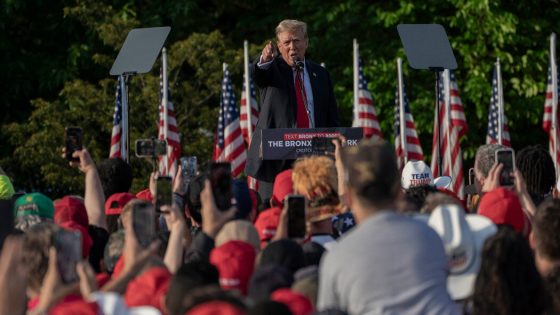Federal prosecutors on Friday night asked the judge overseeing former President Donald J. Trump’s classified documents case to bar him from making any statements that might endanger law enforcement agents involved in the proceedings.
Prosecutors said Mr. Trump had recently made “grossly misleading” assertions about the F.B.I.’s search of Mar-a-Lago, his private club and residence in Florida, two years ago. The request came just days after the former president falsely suggested that the F.B.I. had been authorized to shoot him when agents descended on Mar-a-Lago in August 2022 and discovered more than 100 classified documents while executing a court-approved search warrant.
In a social media post on Tuesday, Mr. Trump falsely claimed that President Biden “authorized the FBI to use deadly (lethal) force” during the search.
Mr. Trump’s post was a reaction to an F.B.I. operational plan for the Mar-a-Lago search that was unsealed on Tuesday as part of a legal motion filed by Mr. Trump’s lawyers. The plan contained a boilerplate reference to lethal force being authorized as part of the search, which prosecutors said Mr. Trump had distorted.
“As Trump is well aware, the F.B.I. took extraordinary care to execute the search warrant unobtrusively and without needless confrontation,” prosecutors wrote in a motion to Judge Aileen M. Cannon, who is overseeing the case.
“They scheduled the search of Mar-a-Lago for a time when he and his family would be away,” the prosecutor added. “They planned to coordinate with Trump’s attorney, Secret Service agents and Mar-a-Lago staff before and during the execution of the warrant; and they planned for contingencies — which, in fact, never came to pass — about with whom to communicate if Trump were to arrive on the scene.”
The request to Judge Cannon was the first time that prosecutors have sought to restrict Mr. Trump’s public statements in the case.
Prosecutors did not seek to impose a gag order on Mr. Trump, but instead asked Judge Cannon to revise his conditions of release to forbid him from making any public comments “that pose a significant, imminent and foreseeable danger to law enforcement agents participating in the investigation.”
Source Agencies


